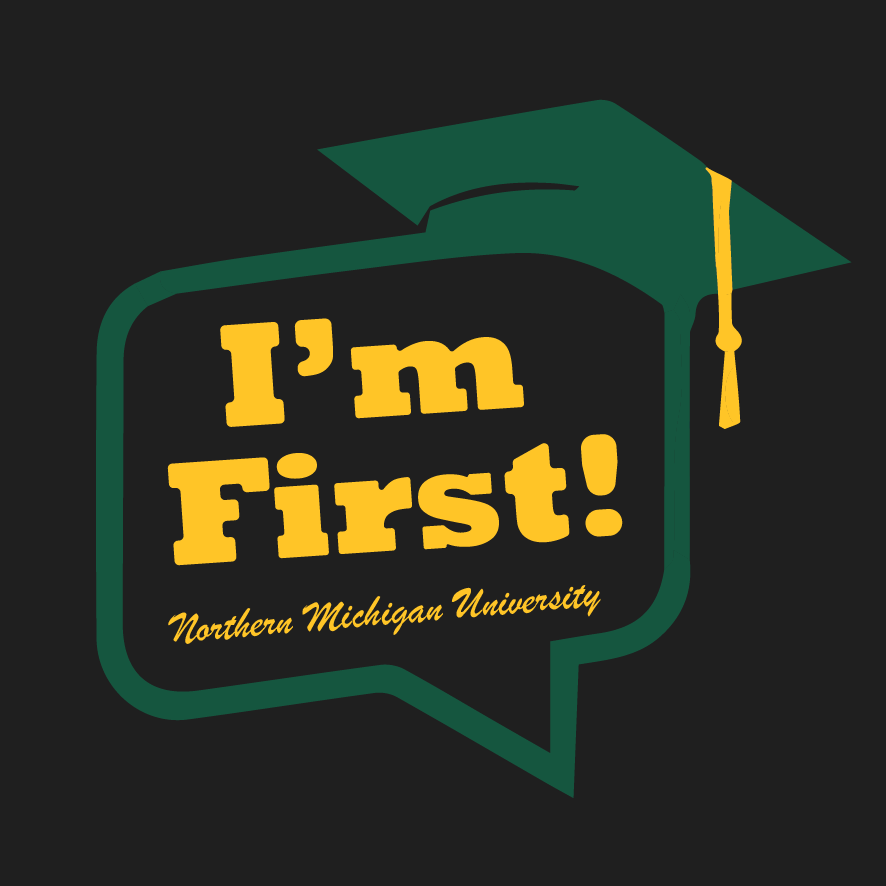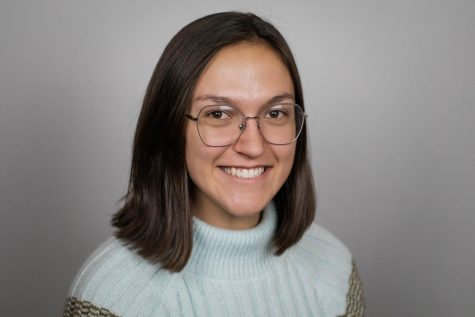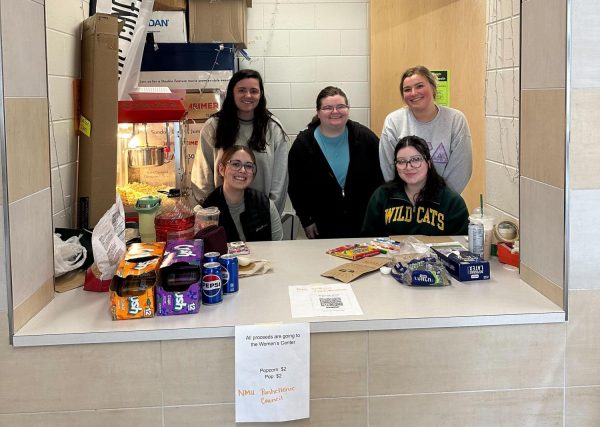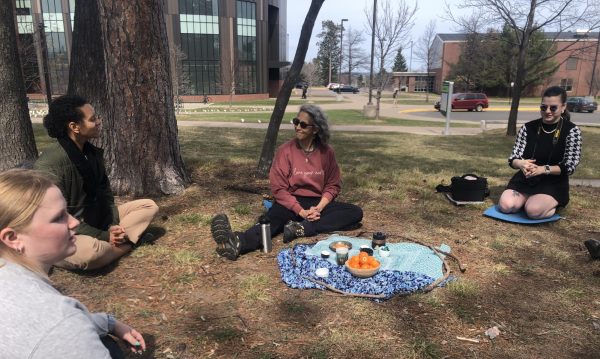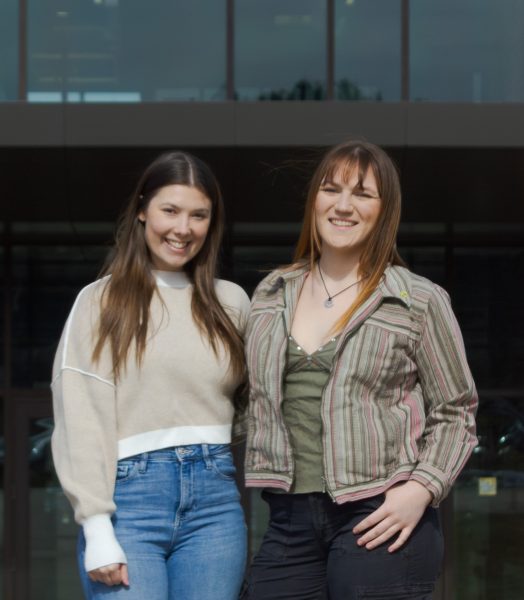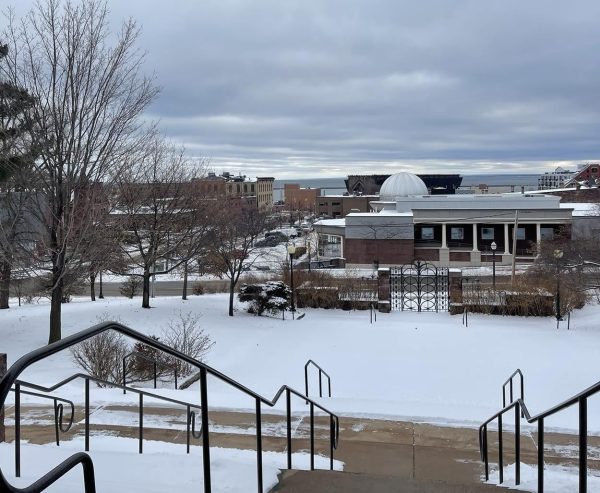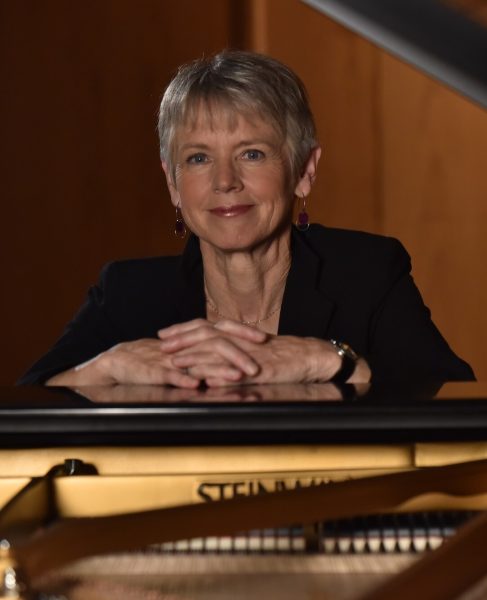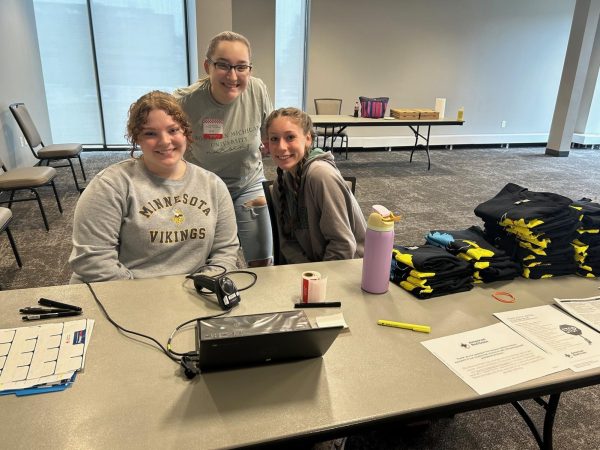NMU to host first-generation college celebration Tuesday
November 7, 2022
Northern Michigan University will be celebrating first-generation students tomorrow, Nov. 8, as part of a nationwide effort to commemorate this specific subset of the college population.
Several first-gen faculty and staff members are set to share their stories of trial and triumph as students during a panel presentation in Jamrich 1318 at 1:30 p.m. NMU students are encouraged to gather for engaging discussion, which will include panelists disclosing how their education led them to a career at NMU.
Festivities, including a first-gen photograph by the Wildcat Statue and a pizza party in the Hedgcock Atrium, will begin when the panel concludes at 3 p.m.
Linda Sirois, assistant dean of students and coordinator of first-gen programs, has spearheaded the planning of the first-gen college celebration.
“It is basically a way of drawing attention to the fact that this is a significant population with significant barriers and strengths they are trying to get through,” Sirois said. “They should have attention, encouragement and extra support whenever possible.”
According to Sirois, a student is considered to be first-gen when neither of their parents, whether biological, adoptive or foster, have earned a bachelor’s degree. Just over one-third of NMU’s student population currently defines themselves as first-gen, and that number has held steady over the past several years.
The inaugural First-Generation College Celebration took place in 2017 when the Council for Opportunity and Education teamed up with the Center for First-Generation Student Success in encouraging universities across the country to put a spotlight on the achievements of their first-gen students.
The celebration date, Nov. 8, was not chosen at random. The signing of the Higher Education Act of 1965 took place on that date 57 years ago and subsequently strengthened the educational resources, including financial assistance, provided at postsecondary and higher education institutions across the country. The act played a crucial role in ensuring that higher education is both accessible and attainable to all citizens.
“I was a first-gen and that is why I have a passion for it because it takes a hard thing and makes it even harder,” Sirois said. “I feel like I have a really good understanding of some of the barriers and some of the ways of feeling outside of the norm.”
Because their parents did not attend college, Sirois said that first-gen students lack the cultural capital that is required for a successful college experience. Cultural capital can be anything from understanding complex terminology and educational jargon to having previously established social connections within the university.
This cultural capital, however, can be acquired through services that are tailored to first-gen students’ needs.
“College is hard. It is very different from high school and that is not understood if you haven’t been through it,” Sirois said. “First-gens run into barriers when it feels so hard because they have a tendency to think it’s just them and that they don’t really belong here … when in reality everybody struggles in college. That is the college norm.”
The celebration of first-gen students will continue the following day with the first-gen pop-up lounge at 2 p.m. in Jamrich 1318. These lounges will continue to be held weekly throughout the semester. First-gen students looking for additional guidance and resources can visit the Dean of Students webpage for more information.





















